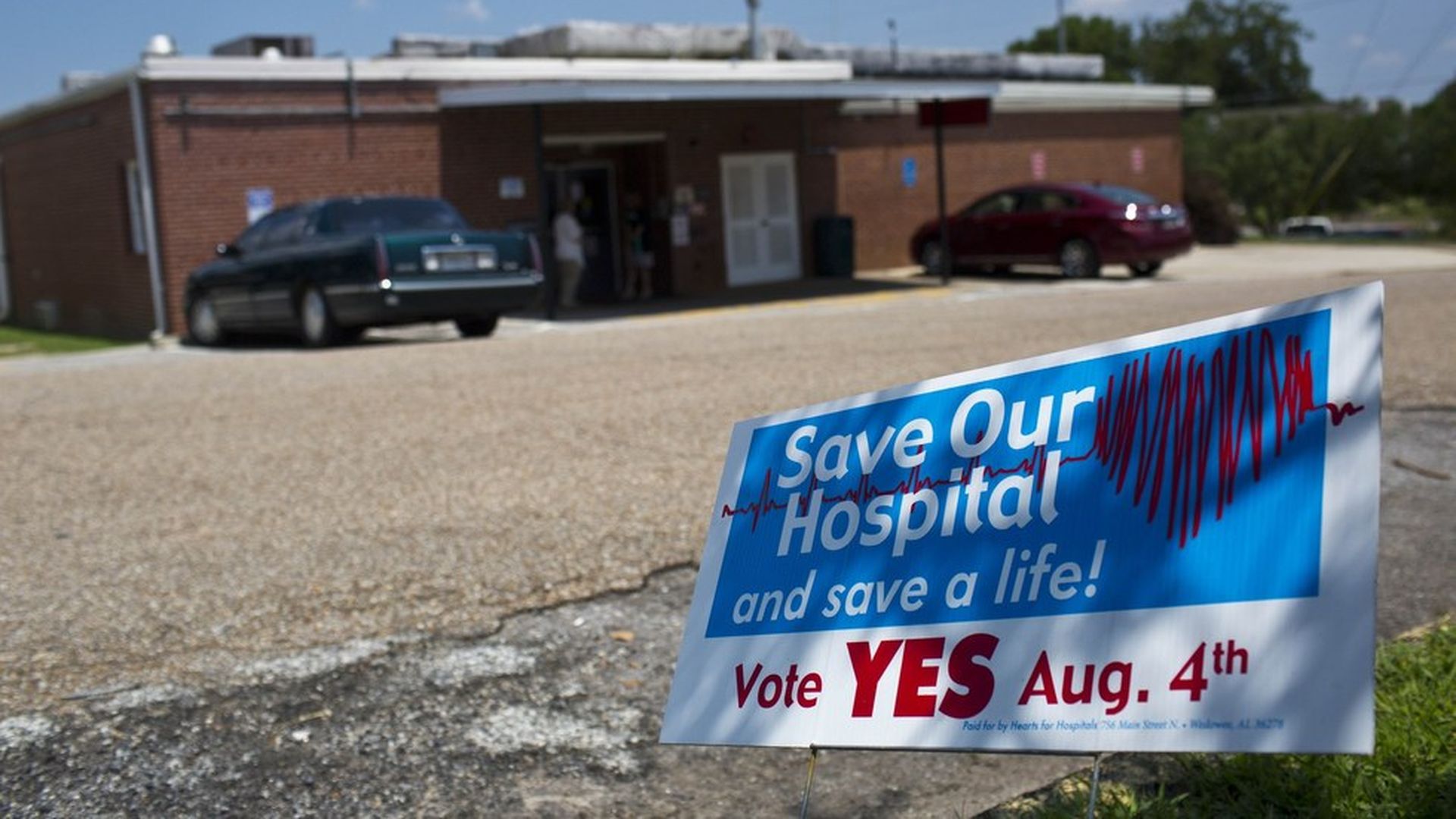Why the health care industry isn’t keen on Medicaid reform
Add Axios as your preferred source to
see more of our stories on Google.

Brynn Anderson/AP
President Trump and Republicans have made it clear they want to change Medicaid in a way that reduces spending and gives states more leeway to operate their programs.
But that financial blow faces resistance from hospitals and others in the industry who rely on Medicaid's already tight resources, as well as seniors who could be affected by the change. It's not at all certain, or likely, Republicans will win over those groups. Yet, they could wind up victorious anyway since more states are privatizing Medicaid programs on their own — a policy that mimics per capita caps.
The difference between Medicaid block grants and per capita caps: Block grants give states fixed amounts of federal dollars — spend as you will, and make up whatever else you need on your own. Per capita caps provide lump sums for every person, which results in extra money in years where Medicaid enrollment spikes. But the result of either strategy inevitably is the same, based on past proposals: Less federal funding over time, since fixed payments are indexed below health care inflation.
The provider opposition is real: Safety net hospitals, rural facilities and community health centers would be most affected in the industry by the cuts that result from block grants or per capita caps, since they treat more Medicaid patients.
Alan Morgan, CEO of the National Rural Health Association, is staunchly against block grants and argues reimbursement cuts would especially penalize rural hospitals that reside in states that didn't accept Obamacare's Medicaid expansion. "The rural health climate just can't sustain further reductions," he said, citing a slew of small-town hospital closures.
"It's a real concern," added Shawn Gremminger, a lobbyist for America's Essential Hospitals, which represents public and safety net hospitals.
The broader provider community isn't overly excited about the concept either, unless Obamacare's other federal funding cuts are also abolished.
Who would be affected most: People who are eligible for both Medicare and Medicaid — 10 million of the oldest, sickest and poorest people in the country — would be the hardest hit since they eat up a big chunk of Medicaid spending. But the powerful AARP lobby, which represents those seniors, has already started fighting Congress to block the Medicaid reforms.
"Support for vulnerable populations is a shared responsibility between federal and state governments," said Elaine Ryan, vice president of state advocacy at AARP. "There has to be a meaningful federal role, especially in a way that doesn't cost shift to state governments that really are ill-equipped to meet the needs of these populations on their own."
But here's a twist: Per capita caps already kind of exist. More state Medicaid programs have turned the funding and operations over to private health insurers, where they are given a lump sum of money for each person they cover, similar to per capita caps. Roughly 50 million Medicaid beneficiaries are enrolled in a managed care plan, and that number is growing every year.
"What's the difference between per capita caps and managed care capitated payments? We're talking shades of gray here," said Dan Boston, president of the consulting firm Health Policy Source.
The thinking then becomes: Why not just convert every state into managed Medicaid? Long-term care in Medicaid is already going down that path. However, Gremminger said that states currently have the flexibility to use Medicaid's "open-ended entitlement" to pay insurers more, and per capita caps could prevent states from paying those companies "actuarially sound rates."
Health insurers could view those Medicaid funding cuts negatively over time, because if they don't get as much money, they'll have to pay hospitals and doctors less — at a time when their payments already don't cover providers' costs. Either that, or insurers will have to slash some benefits.
Many consumers also haven't been thrilled about shifting to Medicaid managed care. Iowa is a big case in point, where pretty much everyone is unhappy with the conversion. North Carolina is turning into the next big battle, where Republicans are trying to privatize Medicaid by 2019 while many providers have voiced opposition.
